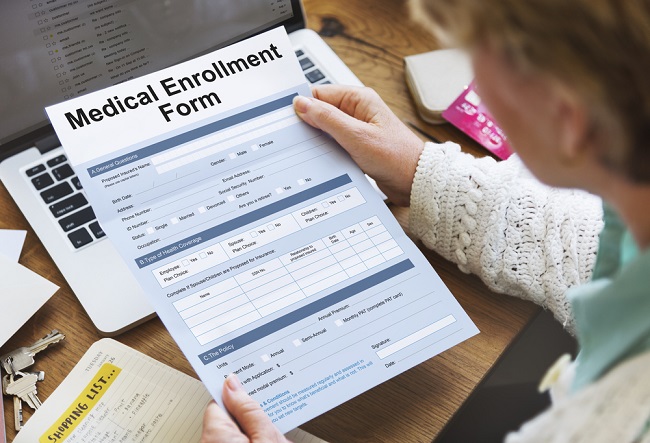
The rules and timetables for Medicare enrollment can be confusing to many new retirees, so it’s smart to plan ahead. Here’s a simplified rundown of what to know.
First a quick review. Remember that original Medicare has two parts: Part A, which provides hospital coverage and is free for most people, and Part B which covers doctor’s visits and other medical services, and cost $170.10 per month for most enrollees in 2021.
When to Enroll
Everyone is eligible for Medicare at age 65, even if your full Social Security retirement age is 66 or later.
You can enroll any time during the “initial enrollment period,” which is a seven-month period that includes the three months before, the month of, and the three months after your 65th birthday. It’s best to enroll three months before your birth month to ensure your coverage starts when you turn 65.
If you happen to miss the seven-month sign-up window for Medicare Part B, you’ll have to wait until the next “general enrollment period” which runs from Jan. 1 to March 31 with benefits beginning the following July 1. You’ll also incur a 10 percent penalty for each year you wait beyond your initial enrollment period, which will be tacked on to your monthly Part B premium. You can sign up for premium-free Part A, at any time with no penalty.
Working Exceptions
Special rules apply if you’re eligible for Medicare and still on the job. If you have health insurance coverage through your employer or your spouse’s employer, and the company has 20 or more employees, you have a “special enrollment period” in which you can sign up. This means that you can delay enrolling in Medicare Part B and are not subject to the 10 percent late-enrollment penalty if you sign up within eight months of losing that coverage.
Drug Coverage
Be aware that original Medicare does not cover prescription medications, so if you don’t have credible drug coverage from an employer or union, you’ll need to buy a Part D drug plan from a private insurance company (see Medicare.gov/plan-compare) during your initial enrollment if you want coverage. If you don’t, you’ll incur a premium penalty – 1 percent of the average national premium ($33 in 2022) for every month you don’t have coverage – if you enroll later.
Supplemental Coverage
If you choose original Medicare, it’s also a good idea to get a Medigap (Medicare supplemental) policy within six months after enrolling in Part B to help pay for things that aren’t covered by Medicare like copayments, coinsurance, and deductibles. See Medicare.gov/medigap-supplemental-insurance-plans to shop and compare policies.
All-In-One Plans
Instead of getting original Medicare, plus a Part D drug plan and a Medigap policy, you could sign up for a Medicare Advantage plan instead (see Medicare.gov/plan-compare) that covers everything in one plan. Nearly half of all new Medicare enrollees are signing up for Advantage plans.
These plans, which are also sold by insurance companies, are generally available through HMOs and PPOs and often have cheaper premiums, but their deductibles and co-pays are usually higher. Many of these plans also provide coverage for extra services not offered by original Medicare like dental, hearing and vision coverage along with gym/fitness memberships, and most plans include prescription drug coverage too.
How to Enroll
If you’re already receiving your Social Security benefits before 65, you will automatically be enrolled in Part A and Part B, and you’ll receive your Medicare card about three months before your 65th birthday. It will include instructions to return it if you have work coverage that qualifies you for late enrollment.
If you’re not receiving Social Security, you’ll need to enroll either online at SSA.gov/medicare or over the phone at 800-772-1213.
Jim Miller publishes the Savvy Senior, a nationally syndicated column that offers advice for Boomers and Seniors.
Related Articles & Free Vermont Maturity Subscription

Comparing Medicare Plans Could Save You Money
Curious About CBD? Here’s What it Can and Cannot Do for You






Comment here